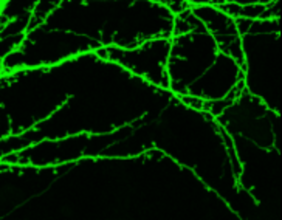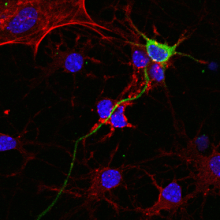Mechanisms that maintain the functional and structural integrity of neurons
and their disruption in aging and disease. Our brains enable us to laugh,
dance, love, and create. Brains are made up of networks of neuronal cells,
which process and store huge amount of information. The vast majority of
neurons that operate your brain last a lifetime and are not replaced and
loss of neurons causes neurodegenerative diseases such as Alzheimer's disease.
How can we keep our brain functions during aging and reduce the risk of
age-associated neurodegenerative diseases?
We tackle these questions with focuses on mitochondrial distribution in
neurons and microtubule-binding protein tau, both of which play key roles
in the pathogenesis of Alzheimer's disease and other neurodegenerative
diseases.
Our current research projects include (1) How tau gain toxicity in disease pathogenesis, (2) mechanisms underlying depletion of axonal mitochondria increase neuronal vulnerability, (3) age-dependent changes in local energy metabolism in neurons and risks of neurodegenerative diseases.
As experimental approaches, we use Drosophila models, molecular biology, biochemistry, behavioral analysis, gene expression analysis, and imaging.
We hope discoveries from this research enhance understanding of disease
pathogenesis and contribute to increasing our healthspan.
Current topics includes:
-Alzheimer's disease and related tauopathies
-Mitochondria in neurons in physiology and diseases
-Brain aging and energy metabolism




 copyright©2019 Laboratory of Molecular
Neuroscience all rights reserved.
copyright©2019 Laboratory of Molecular
Neuroscience all rights reserved.